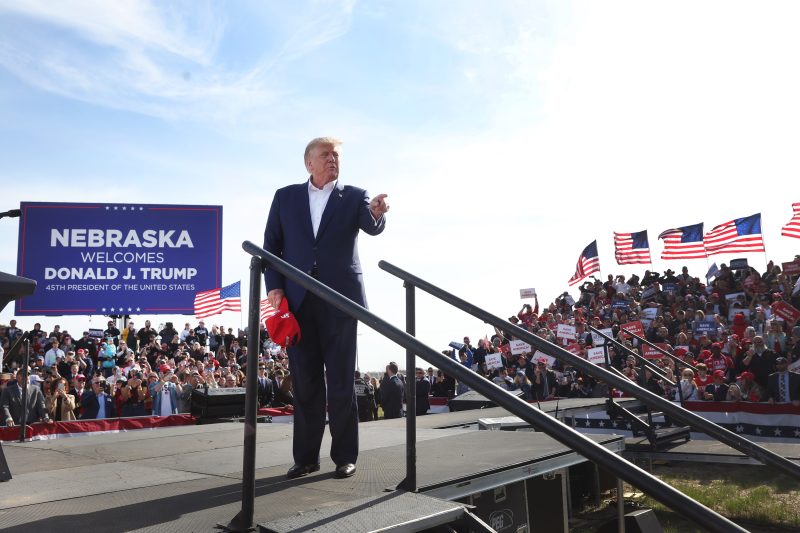In recent news, the state of Nebraska has become a focal point in the ongoing discussions surrounding electoral vote allocation. President Donald Trump has recently intensified efforts to prompt Nebraska to adjust its allocation method for electoral votes. This move has sparked debates and raised questions about the implications of such a decision on the electoral process.
Nebraska currently employs a unique system compared to most other states in the U.S. Instead of adopting a winner-takes-all approach, the state allocates its electoral votes based on the winner of each congressional district. Additionally, the state awards two electoral votes to the overall winner of the statewide vote.
President Trump’s push for Nebraska to change its electoral vote allocation method has garnered attention from various stakeholders. The President’s rationale behind this effort appears to be rooted in seeking a more advantageous outcome for future elections. By advocating for a shift towards a winner-takes-all system, Trump aims to consolidate support and maximize electoral votes in his favor.
However, critics of the proposed change have voiced concerns regarding the potential impact on electoral fairness and representation. They argue that altering the current allocation method could disenfranchise voters, particularly those in minority or less populated areas. By emphasizing the winner-takes-all approach, there is a risk of marginalizing diverse voices and reducing the influence of certain communities in the electoral process.
Moreover, the debate surrounding Nebraska’s electoral vote allocation reflects broader discussions on electoral reform and democratic principles. As calls for electoral college reform gain traction nationwide, the spotlight on Nebraska’s system serves as a microcosm of the larger discourse on the efficacy and equity of the electoral process.
The outcome of President Trump’s efforts to urge Nebraska to change its electoral vote allocation method remains uncertain. While proponents argue for strategic advantages and streamlined outcomes, opponents highlight the importance of preserving representation and inclusivity in the electoral system.
In conclusion, Nebraska’s unique electoral vote allocation system has become a focal point in the discussions surrounding electoral reform and fairness. President Trump’s push for change has ignited debates on the implications of altering the current method and its potential impact on the democratic process. As the nation grapples with questions of electoral integrity and representation, Nebraska’s electoral system stands as a test case for broader conversations on the future of the electoral college and democratic governance.

